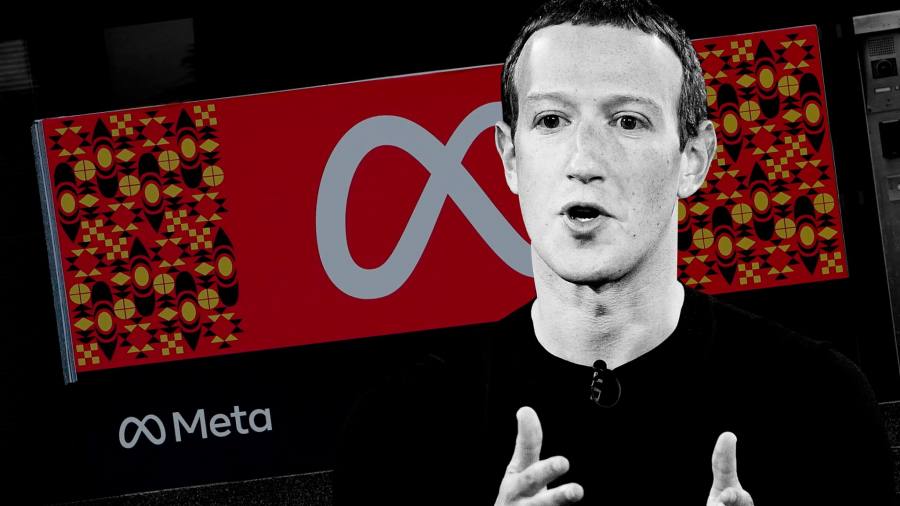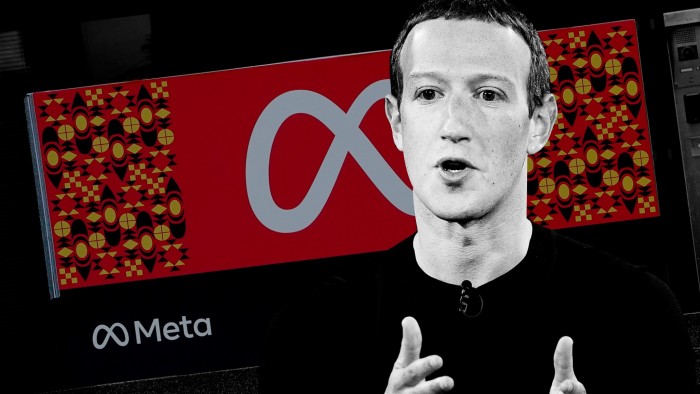
After 18 years of bumper growth, a new reality dawned on Meta on Wednesday as chief executive Mark Zuckerberg announced a drastic retrenchment of his company’s workforce.
The deep job cuts — equal to about 13 per cent of its workforce, or 11,000 employees — speak to the competitive threats that Meta, which owns Facebook, Instagram and WhatsApp, is facing from deep-pocketed Chinese rival TikTok.
They are also the first sign that Zuckerberg has been forced to moderate, at least partly, his costly bet on building a digital avatar-filled metaverse amid heightened scrutiny from investors over his spending.
“The bubble has burst,” one former Meta staffer said.
The job cuts are part of a wider cull in tech. Companies that rely heavily on advertising revenue have been hammered as brands slash their budgets against a backdrop of high inflation and high cost of capital. According to Layoffs.fyi, a website that tracks tech companies’ job cuts, there have been more reductions in the first nine days of November than in any other month in 2022.
Even with the headcount correction, Meta still has more staff than it did last year, analysts noted, a sign of how rapidly the company ballooned during its pandemic boom. At the end of December 2021, the company had almost 72,000 staff; on Wednesday, the cuts shrank its workforce from more than 85,000 to about 74,000.
“Meta laying off 11k people takes it back to December 2011 levels. Wait, no — December 2021,” wrote Benedict Evans, an independent technology analyst and former venture capitalist.
Many investors and even some employees have been critical of what they perceive as Zuckerberg’s over-hiring in an effort to seize the spoils of pandemic trends, including more online communication and shopping.
“They grew so quickly and were so lavish with perks,” said Zaven Nahapetyan, a former senior engineering manager at Facebook who left in 2021 to found the decentralised social media platform Niche. “There’s so many teams that did not need to be there and so many products that no one knows about. I’m not surprised that reality is now catching up with them.”
But others believe Zuckerberg acted rationally in staffing up as fast as he could and always realised he would need to reckon with it at a later point.
“It was a land grab for engineers. Everyone knew it was wasteful,” said Kevin Landis, a tech investor at Firsthand Funds. “They absolutely knew they were being wasteful, and they absolutely knew it was the right thing to do.”
A sombre Zuckerberg appeared before those who remained at an all-hands meeting on Wednesday. “I know there must be just a range of different emotions. I want to say upfront that I take full responsibility for this decision,” he said, according to a video of the meeting shared with NBC News. “And it was one of the hardest calls that I’ve had to make.”
Either way, the reckoning has left many current and former Meta workers reeling.
One former employee described the mood internally as “big chaos”, adding: “This is a complete shit show.” Interns with offers to return for future positions were fretting over whether their places would still be guaranteed, one of them said.
In some cases, the reductions appeared to be more based on cutting select roles and teams, rather than low performers, according to two other insiders.
Of the areas targeted, recruitment was badly hit. Companies including Stripe and Twitter have focused their job cuts on recruiters as they have frozen hiring, meaning Meta’s recruiters were also braced for losses.
“I think most of us on the recruiting team had an idea we would be let go this morning,” Ryan Anderson, a Boston-based recruiter who was let go from Meta on Wednesday, wrote on LinkedIn.
Zuckerberg acknowledged that recruitment was “disproportionately affected”, and said that Meta was “restructuring our business teams more substantially”. Even Reality Labs, the augmented and virtual reality division underpinning Zuckerberg’s metaverse vision, suffered cuts.
For those who remain, confusion reigns. “It is very unclear who takes over what projects and relationships,” said one current staffer, adding that even those who stayed were downtrodden. “It’s totally brutal.”
There were signs that the cuts had appeased investors, who wiped more than $89bn from the company’s market capitalisation in late October after Meta posted declining revenues. Meta shares closed up more than 5 per cent on Wednesday.
Jim Tierney, chief investment officer for US growth at AllianceBernstein, a Meta shareholder, said it was “definitely a step in the right direction”. But he questioned why the company still expected between 10 and 15 per cent growth in expenses in 2023 regardless of the cuts, adding: “I still think they need to tighten up further on costs.”
Brent Thill, an analyst at Jefferies, said in a note that he did not expect the job cuts to hurt Meta’s revenue growth trajectory and was “encouraged by the potential for positive earnings per share revisions for the first time in 15 months”.
Others warned that the outlook for Meta remained bleak. Dan Ives, an analyst at Wedbush Securities, said that “Zuckerberg finally read the room and took action”, which was a “step in the right direction”.
But he added: “Meta lay-offs [are] an ominous sign of dark days ahead for Zuckerberg & Co. The metaverse strategy remains a head-scratcher and social media headwinds are gathering.”
Additional reporting by Richard Waters in San Francisco
